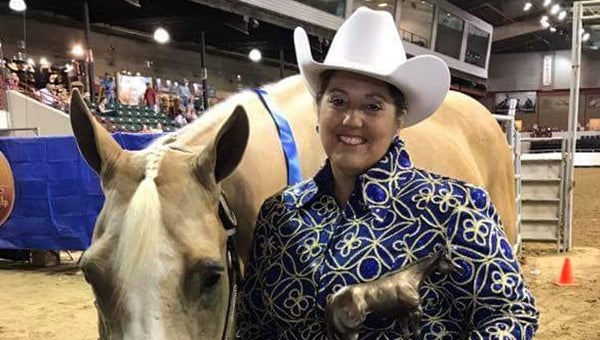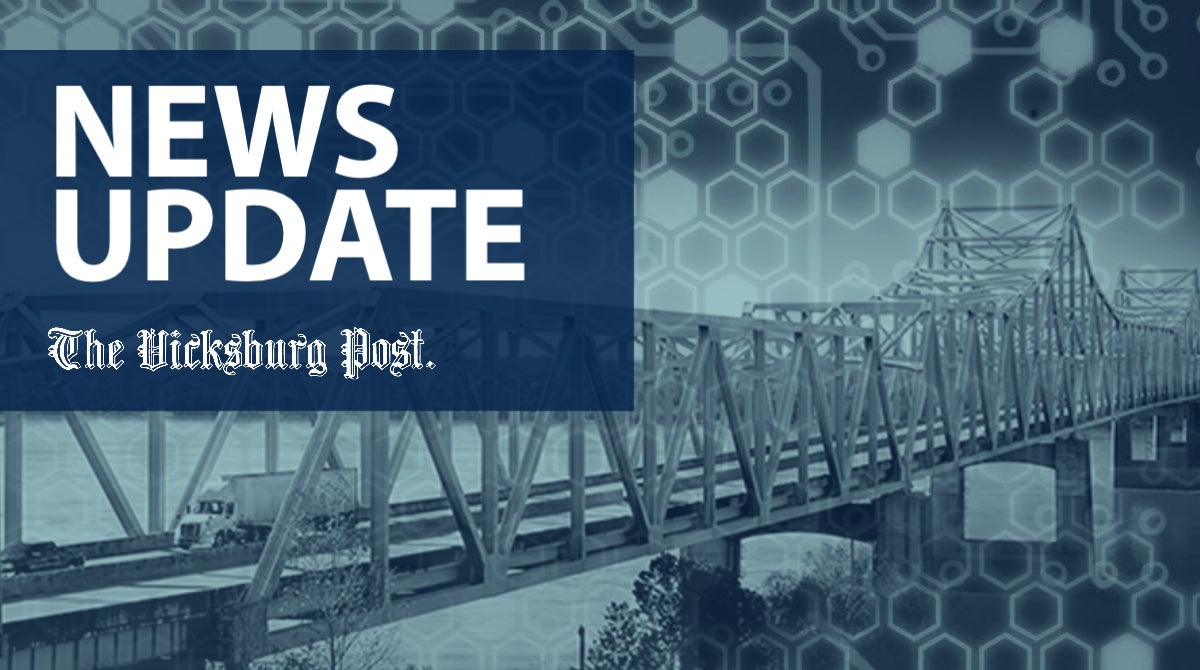Nosser combines passion for horses with service to others
Published 3:53 pm Sunday, April 29, 2018

- MAKING A DIFFERENCE: Leigh Ann Nosser poses with one of her horses after it won a championship. Nosser is executive director of Rainbow Farms, a nonprofit program that provides riding therapy for people with mental, physical or neurological disabilities. (Submitted/The Vicksburg Post)
Leigh Ann Nosser’s passion for horses has led her to provide a unique service.
Nosser owns, operates and is the executive director of Rainbow Farms in Warren County; primarily focused on providing therapy for people with mental, physical and neurological disorders through riding.
A native of Vicksburg, Nosser is the sister of the late Rowdy Nosser.
“He and I were the two youngest,” she said. “I was the youngest and he was three years older.
“I have shown horses and had horses since I was 7 years old. My brother Rocky gave me my first horse. It just kind of went from there. I’ve had show horses forever.”
Nosser graduated from the University of Southern Mississippi with a degree in speech pathology, “But I never did that, because I always loved the horses.”
She went to the Cheff Therapeutic Riding Center in Augusta, Michigan, where she became a certified therapeutic riding instructor with what then the North American Riding for the Handicapped program. She received her advanced certification in Florida, and returned to Vicksburg to open Rainbow Farms, which is a nonprofit organization.
“I opened up and people started coming,” Nosser said. “When I did, it was the first therapeutic riding center in the state that was accredited. Back then, therapeutic riding was much newer than it is now. People would go, ‘What it that?’ It is well-known now.”
She said she had to educate people about the program, adding people would donate money for riders and different equipment for the farm.
Since she received her certification, therapeutic riding has fallen under umbrella of a program called “equine assisted activity and therapy.”
Nosser said the program helps a variety of people, some with mental health problems, some with physical disabilities, and she has a licensed clinical social worker and licensed occupational therapist who help her to provide the therapy.
When someone comes to the farm for therapy, she said, “We have a lot of medical forms that have to be filled out. We don’t just take somebody to the horses.”
And all of the horses she uses are donated show horses. “We keep about 20 different therapy horses,” she said.
Nosser said when some patients are introduced to a horse, they are reluctant, “Because they think you’re going to throw them on the horse, and it’s not like that.”
All of the riders have leaders who lead and control the horse, and side walkers who walk beside the animal help the rider stay on the horse. Some riders, she are more independent and don’t need the walkers.
When mentally or physically challenged people get on a horse, Nosser said, their personalities change.
“Someone in a wheelchair, once they get on there, we have a special ramp to help them get on the horse. They achieve a certain amount of freedom they don’t get with their wheelchair.
“Autistic riders, a lot of them a lot of them wouldn’t speak, wouldn’t talk, and after being there a whole year we have some talk and come out; it’s amazing.”
Children with sensory problems, she said, eventually begin to touch the horse and end up hugging it. “We use some miniature horses, a donkey to introduce to some of the younger riders to get them used to the horses,” she said.”
Rainbow Farms’ reputation for its work, Nosser said, has some people thinking “all we do is help challenged individuals, but we also work with able-bodied riders. We board horses and train horses, and have riding lessons. We use the income from that to support the therapy riding program. That’s a big source of our income; it’s a huge method of support.”
And Nosser continues her work with show horses, going to several competitions every year, like the World Champion Palomino competition, the Dixie Nationals and the National Snaffle and Bit Association championships.
“I think I have with shown or coached 16 world championship riders or horses,” she said.
And Rainbow Farms has also expanded with a new barn containing a kitchen and office, stalls, tack room, therapy room, and 300 by 150-foor lighted arena.
“Anything they would need or want it’s there,” Nosser said.
“It’s passion; I’ve always wanted to do it, and I think I’m doing exactly what God wants me to do.”






